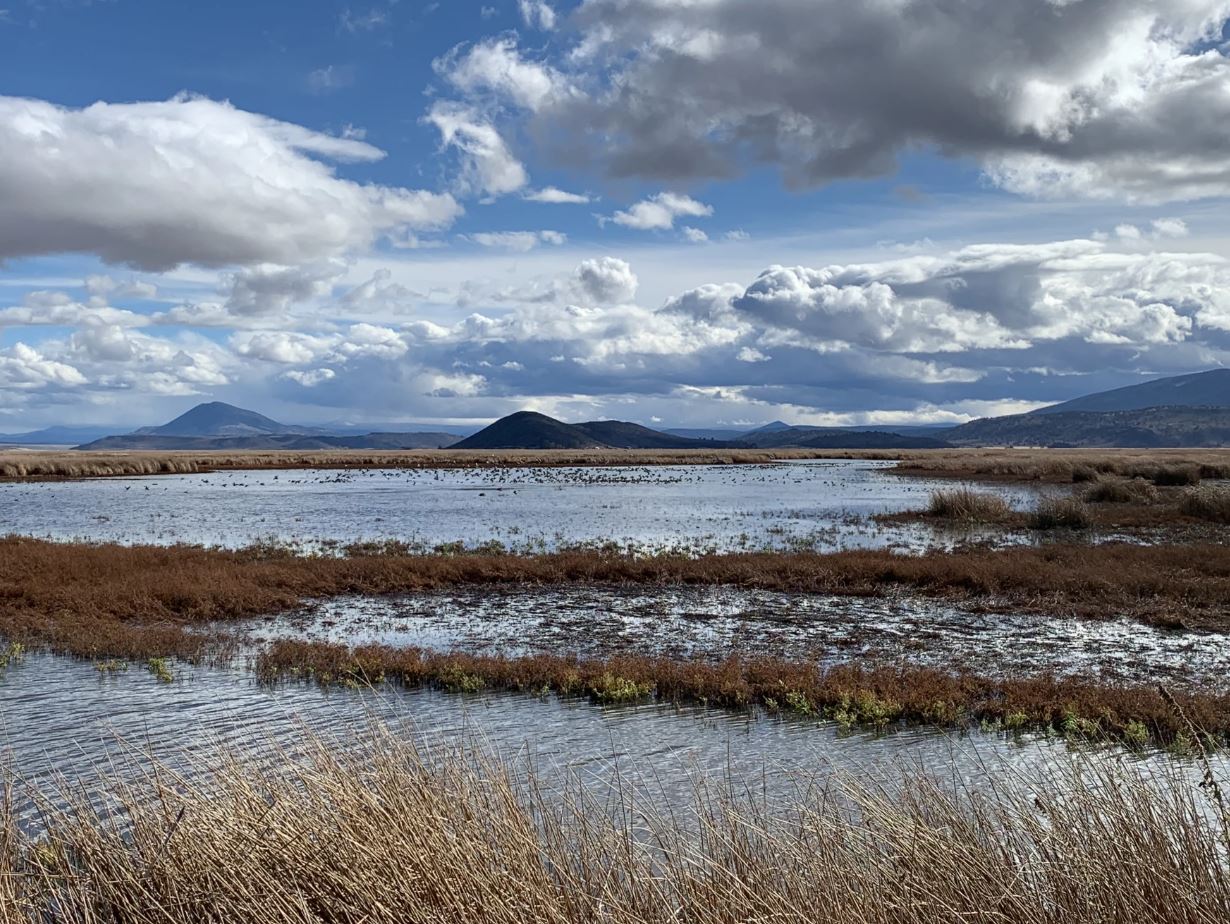
FILE - Lower Klamath Wildlife Refuge in 2021
Erik Neumann / JPR
The U.S. Fish and Wildlife Service is proposing new rules requiring national wildlife refuge managers to promote biological diversity and environmental health. Some Southern Oregon farmers worry that could stop activities like farming on refuge land.
The federal agency said the new rule, which promotes “biological integrity, diversity and environmental health,” is needed to deal with the effects of climate change in the country’s network of wildlife refuges. Those are public lands created to protect native animals and plants.
Klamath Basin farmer Marc Staunton spoke against the proposal this week at a U.S. House Committee on Natural Resources hearing. Staunton runs a farm that uses land on the Lower Klamath National Wildlife Refuge, part of the Fish and Wildlife Services’ Walking Wetlands program. It utilizes flooded wetlands to grow crops while supporting habitat for migratory birds. Supporters of his farming practice see it as an innovative solution as farmers and wildlife refuges compete for water in the drought-stricken Klamath Basin. Staunton said the new rule threatens that project.
“By coming from a place of ‘No, unless,’ the rule impedes the ingenuity of creative minds and the experience of agriculture as a purpose within the ecosystem,” said Staunton at the hearing.
Related: Klamath Basin irrigators, tribes sign conservation agreement, Interior pledges $72M
At the meeting, Steve Guertin, deputy director for program management and policy at the Fish and Wildlife Service, said that while the proposal sets a default position for things like farming, it doesn’t ban those activities.
“Rather, it provides refuge managers with the flexibility to use these practices when necessary to meet statutory requirements, fulfill refuge purposes and ensure ecological integrity,” said Guertin.
The rule, which has received over 50,000 public comments, also prohibits the control of native predators and mosquitoes on refuge land unless certain conditions are met. The Fish and Wildlife Service is set to review those comments before the agency makes a final decision.

